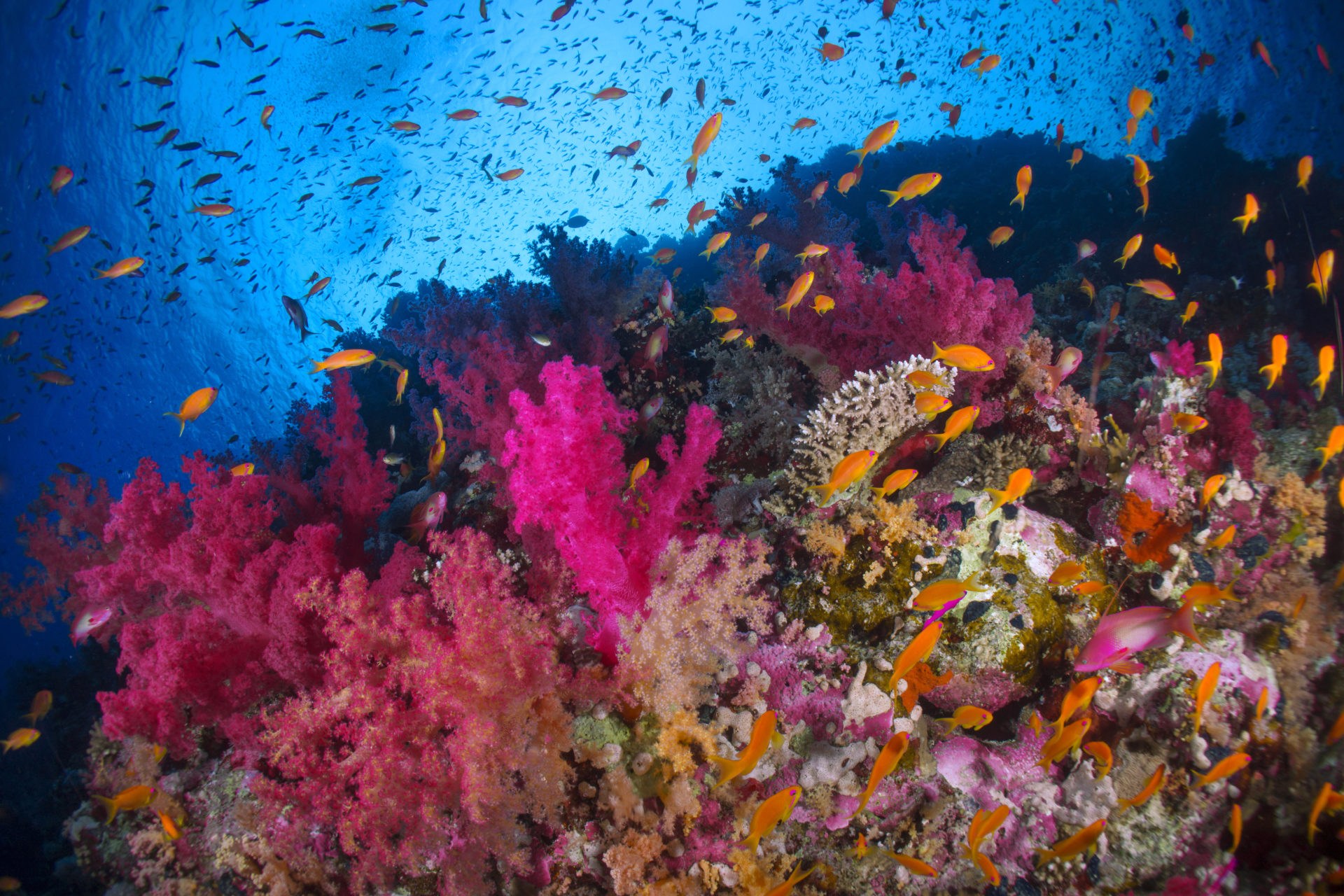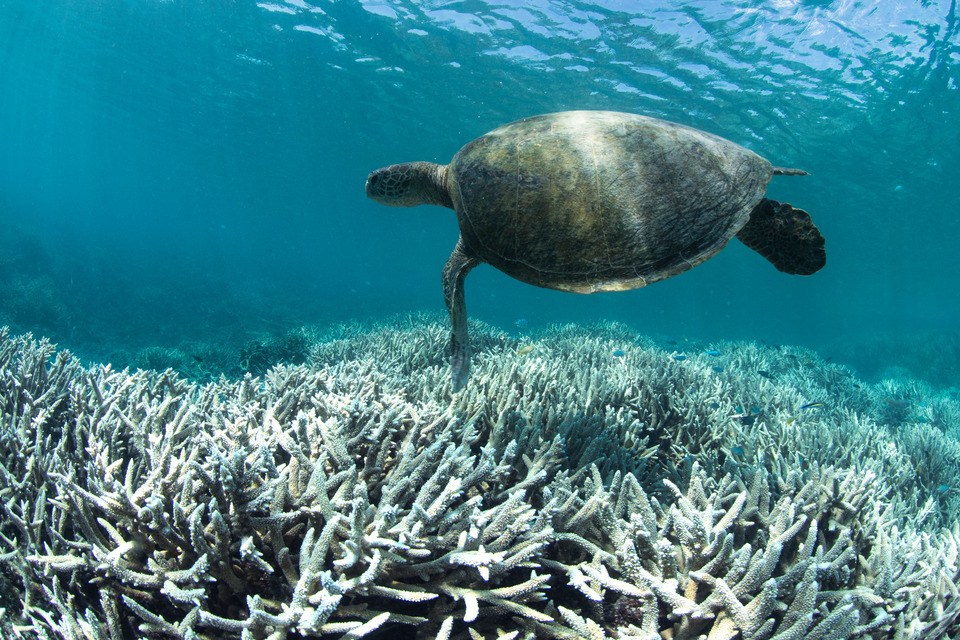In the coming days, leaders from across the world will meet in Glasgow to agree on a coordinated action plan to tackle climate change. On the other side of the world, coral reefs are sending an early warning sign, highlighting just how urgent a global, clear-cut climate policy is.
The time left to implement more ambitious cuts in greenhouse gas emissions is running out and for many reefs, has already passed. Coral reef ecologist Dr Helen Fox says that this is the part of the world that the leaders gathering for the 2021 United Nations Climate Change Conference (COP26) should look to in order to grasp the urgency of the crisis.
"Coral reefs are a canary in the coal mine, they are an early warning to humanity of the threats of climate disruption and what's to come in other ecosystems," she told The Brussels Times.
Between 2009 and 2018, the world lost 14% of its coral reefs – more than the size of all Australia’s reefs combined – as rising sea temperatures resulted in large-scale coral bleaching, according to a report published by two reef monitoring organisations.
As part of this process, corals, which are particularly vulnerable to climate change, expel symbiotic algae living in their tissues in response to changes in conditions such as temperature or nutrients. This turns them completely white.
Vicious climate change circle
The bleaching of coral reefs is a direct result of climate change and is foreboding of what will eventually happen to ecosystems around the world. Furthermore, their death will worsen the effects of global warming on humans.
Dynamic coral cities support up to 800 different species of hard coral and are home to more than 25% of all marine life. They harbour the highest biodiversity of any of the world’s ecosystems. However, they also help protect countries from the impact of extreme weather conditions.
"As a result of climate change, storms are becoming more frequent and more intense. Coral reefs buffer coasts from storm swell and they play an important role as a shoreline protection front," Fox said.

Healthy coral reefs can help protect people from the impact of extreme weather conditions. Credit: Cinzia Osele Bismarck/ Ocean Image Bank
"Studies have shown that healthy reefs serve to break the force of tidal swell and storm surges and in doing so, protect people on the land. If the reef is dead, then there is nothing to break those incoming storm surges, meaning there will be much more damage along the coast," she explained.
When discussing the dangers faced by coral reefs, it can often seem a distant problem for countries like Belgium. However, the "early warning sign" sent by the reefs are relevant to governments across the world, Fox said.
"There is no jurisdiction that will be spared the impacts of climate change. This is a harbinger of what other ecosystems will be subject to in the future, including in Europe," she stressed.
Local initiatives and political will
What is the coral reef's warning for the COP26 leaders? "There is a very narrow window to make the type of choices needed to avoid the disastrous impact that is at the end of the path we are now on."
Although such warnings seem like the future is all doom and gloom, Fox stressed that coral reefs are resilient, if conditions permit.
A Coral Reef Alliance study, which for the first time combined the ecological aspects of corals with an evolutionary component, came to some positive conclusions.
"By creating protected areas where local threats like overfishing and water pollution are reduced, and making sure they are interconnected by ocean currents, networks of coral reefs can adapt and survive over time. This is called evolutionary rescue," Fox explained.
However, such initiatives can only be successful if ambitious climate targets to reduce global warming materialised. Fox recognises this challenge but emphasised that the upcoming COP26 presents an opportunity to change the trajectory and to ensure that coral reefs are there for future generations.
"They are some of the world's most amazing and unique ecosystems and it is a real indictment on humanity if our actions and inaction would cause their loss."
"Now, the challenge is to make leaders at COP26 realise just how much is at stake and that the decisions made now will have huge repercussions. We need to make the hard choices now, the solution is very clear, we just need to have the political will," Fox concluded.

